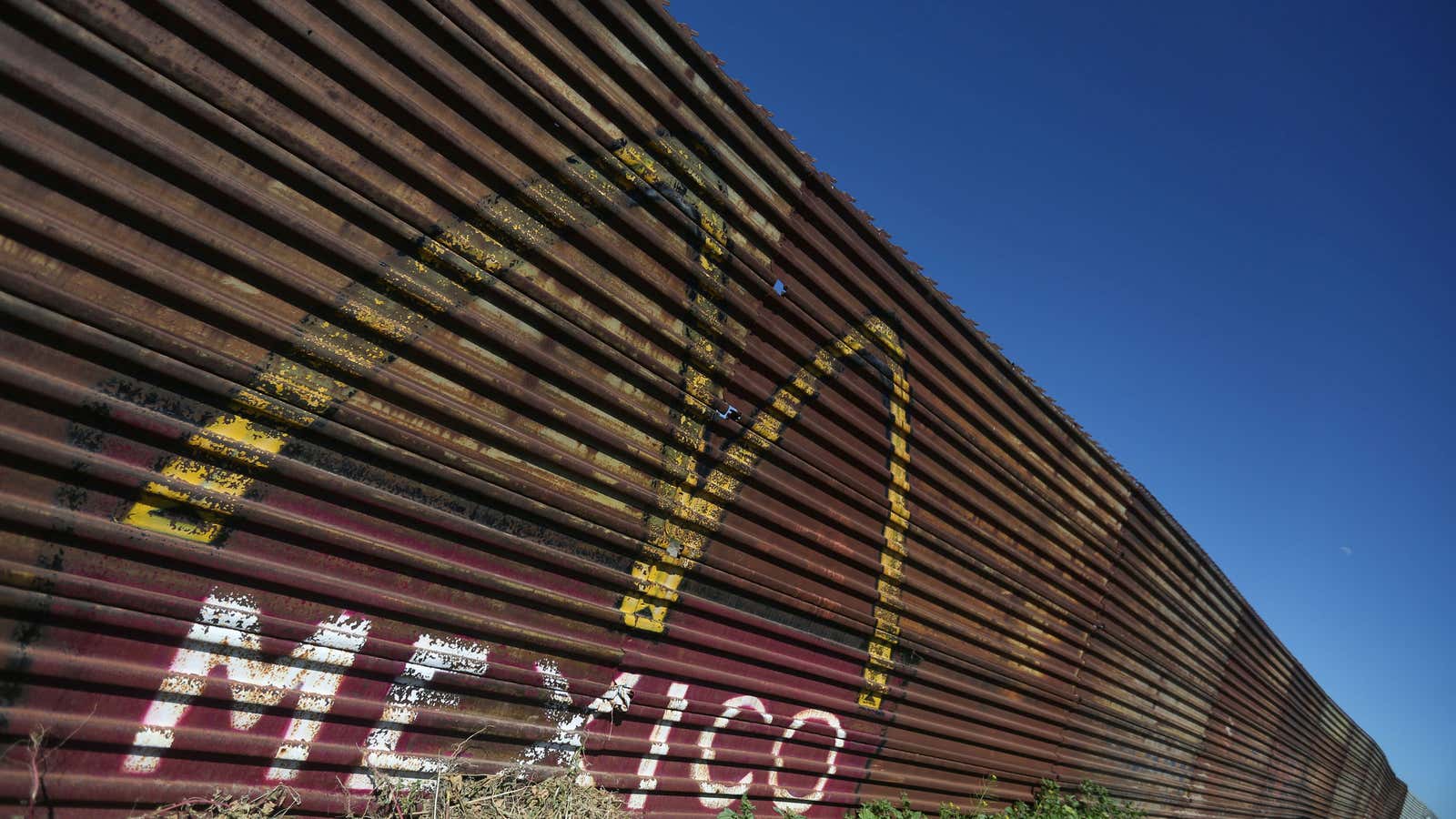The Trump administration’s suggestion that the US may implement a tax on all Mexican imports has economists worried about increased prices for US customers buying everything from cars to avocados, tomatoes, and tequila. But thinking about a border tax or reducing trade already gives you an insight into how intertwined the US economy is with its much poorer neighbor next door.
For example, as the New York Times points out (paywall), nearly every pacemaker used by heart patients in the US is partly manufactured in Mexico—in Tijuana across the border from California.
The US imports about 30% of its medical devices and supplies; annual imports of medical devices reached $43.9 billion in 2016. And Mexico is the leading supplier of these devices to the US, ahead of Ireland, Germany and China. And in the Tijuana, which is the hub of medical-device manufacturing in the country, 70% of the firms are American-owned, some of which have their headquarters across the border in San Diego.
Workers in Tijuana’s maquiladoras, as factories in Mexico run by foreign companies that export their products are called, now produce various components and lifesaving devices such as pacemakers, intravenous bands, feeding tubes, orthopaedic devices, thermometers, and blood-pressure cuffs. The number of people directly employed by the sector in Tijuana has more than doubled, rising from 15,000 in 2006 to nearly 31,000 in 2012.
Uncertainty over the future manufacturing of medical devices in Tijuana has been felt most deeply across the border. In February, San Diego mayor Kevin Faulconer said that the San Diego-Tijuana region had become the “the largest hub of medical device manufacturing in the world,” and that international trade and investment have created more than 110,000 jobs in San Diego.
But while president Donald Trump says that making companies move their manufacturing to the US is just a matter of negotiating the right deal, the cost of manufacturing is not the only barrier to relocating the manufacturing of medical devices. Any change in the process of manufacturing a medical device, which is strictly regulated, can require months and sometimes years of approvals from the Food and Drug Administration and other inspectors, the Times noted.
And in the meantime, a border tax would likely raise the cost of these devices for US hospitals—and the hundreds of thousands of Americans that have them implanted.
